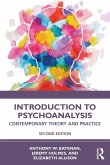

28,99 €
Versandfertig in 6-10 Tagen
Broschiertes Buch
Contemporary Theory and Practice
2. Aufl.
12. Oktober 2021
Routledge / Taylor & Francis
26,95 €
Sofort per Download lieferbar
26,95 €
Sofort per Download lieferbar
Ähnlichkeitssuche: Fact®Finder von OMIKRON
